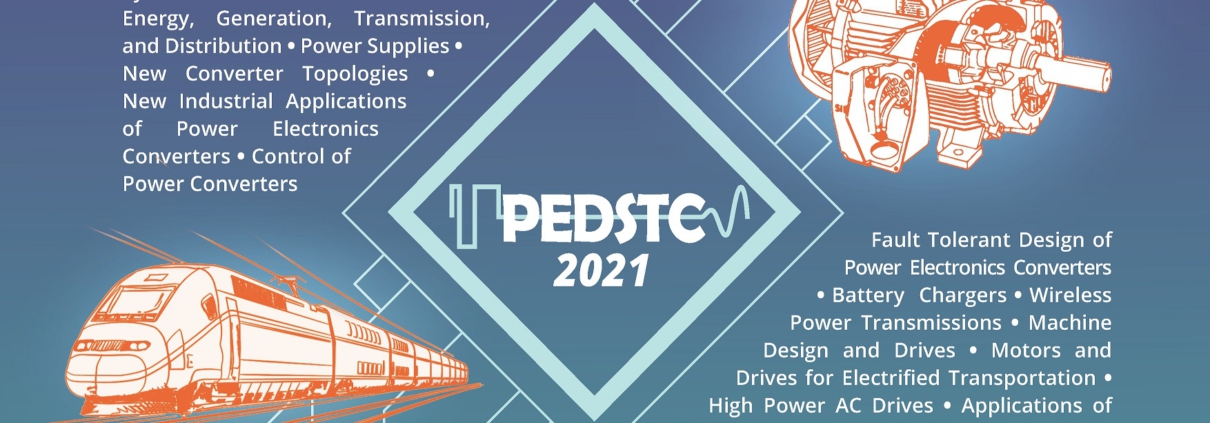برگزاری کارگاه آموزشی در کنفرانس PEDSTC2021 توسط عضو هیات علمی دانشکده مهندسی برق با همکاری پرفسور رودریگز
در روز دوشنبه ۱۳ بهمن ۱۳۹۹ مصادف با اول فوریه ۲۰۲۱ کارگاه آموزشی با عنوان Sensorless Application of Predictive Control in Drives در قالب یکی از کارگاه های کنفرانس PEDSTC2021 برگزار شد. این کارگاه با همکاری مشترک پرفسور رودریگز از دانشگاه آندرس بلو کشور شیلی، آقای دکتر داوری از دانشگاه شهید رجایی و همچنین دکتر گارسیا از دانشگاه تلکا، شیلی برگزار گردید. موضوع کارگاه برگزار شده استفاده از تکنیک های بدون سنسور در کنترل درایوها برمبنای کنترل پیشبین بود که حدود دو ساعت به طول انجامدید و بصورت زنده و در محیط مجازی در خلال برگزاری کنفرانس ارائه شد. چکیده و عناوین مطالب عنوان شده در این کارگاه در انتهای خبر آمده است. گفتنی است، امسال کنفرانس الکترونیک قدرت، درایو و فناوری های وابسته توسط دانشگاه تبریز برگزار گردید.
Title: Sensorless Application of Predictive Control in Drives
The educational workshop has been held by the faculty member of the electrical engineering faculty. The workshop was presented by Prof. Jose Rodriguez, Universidad Andres Bello, CHILE, Dr. Cristiran Garcia, Universidad de Talca, CHILE and Dr. Alireza Davari, Shahid Rajaee University, IRAN.
Abstract: The model predictive control (MPC) method has shown a successful performance beside the easy implementation in drive applications. In many industries, the sensorless application of the drive system is a necessary demand. Therefore, any successful control method should be easily adoptable for sensorless applications. There are more challenges of sensorless application of model predictive control in compare with the traditional control methods, i.e., field oriented control (FOC), and direct torque control (DTC). The control method is based on the model in the MPC technique and the model of the motor is speed dependent. Thus, the control method is more dependent on the speed. In this tutorial, the tricks and the techniques that have been proposed to overcome this issue will be presented. At first, a short review about the MPC based drives will be presented. Then the sensorless application of the MPC based drives will be reviewed. Afterwards, the challenges and the question points will be mentioned and the solutions for each issue will be covered.
Content:
Introduction of model predictive control based drives
Introduction of sensorless drives
Sensorless application of MPC based drives
Observer based speed estimation for the predictive model
Adaptive speed estimation for the predictive method
Signal injection based speed estimation in predictive methods
Challenges in sensorless application of MPC in drives
Speed dependent prediction model
Sensitivity in low speed performance
Parameter variation
Solutions for the challenges of sensorless predictive control of AC motors
Inherently speed independent prediction model
Closed loop prediction model
Robust predictive model
Finite set position estimation


